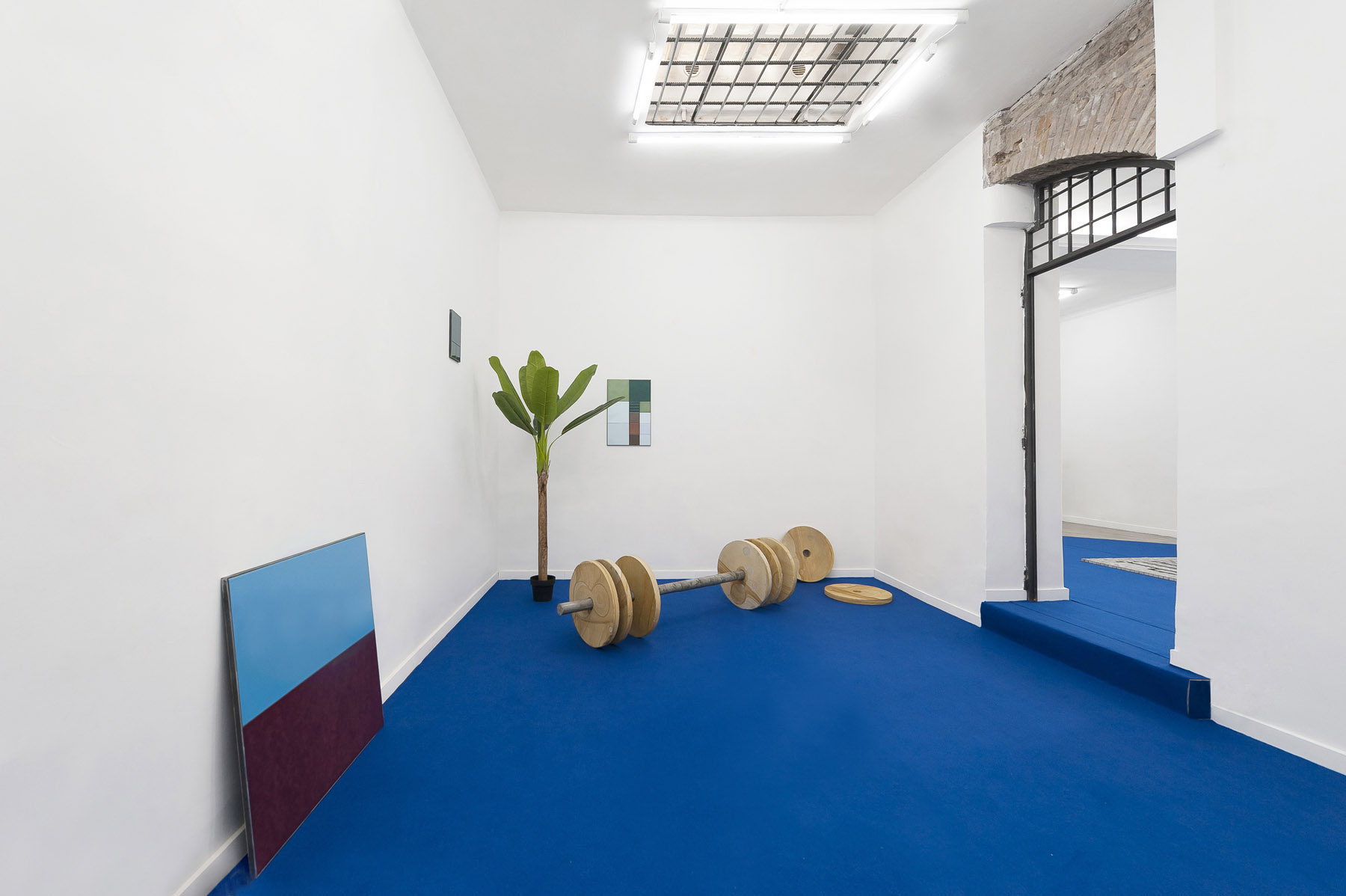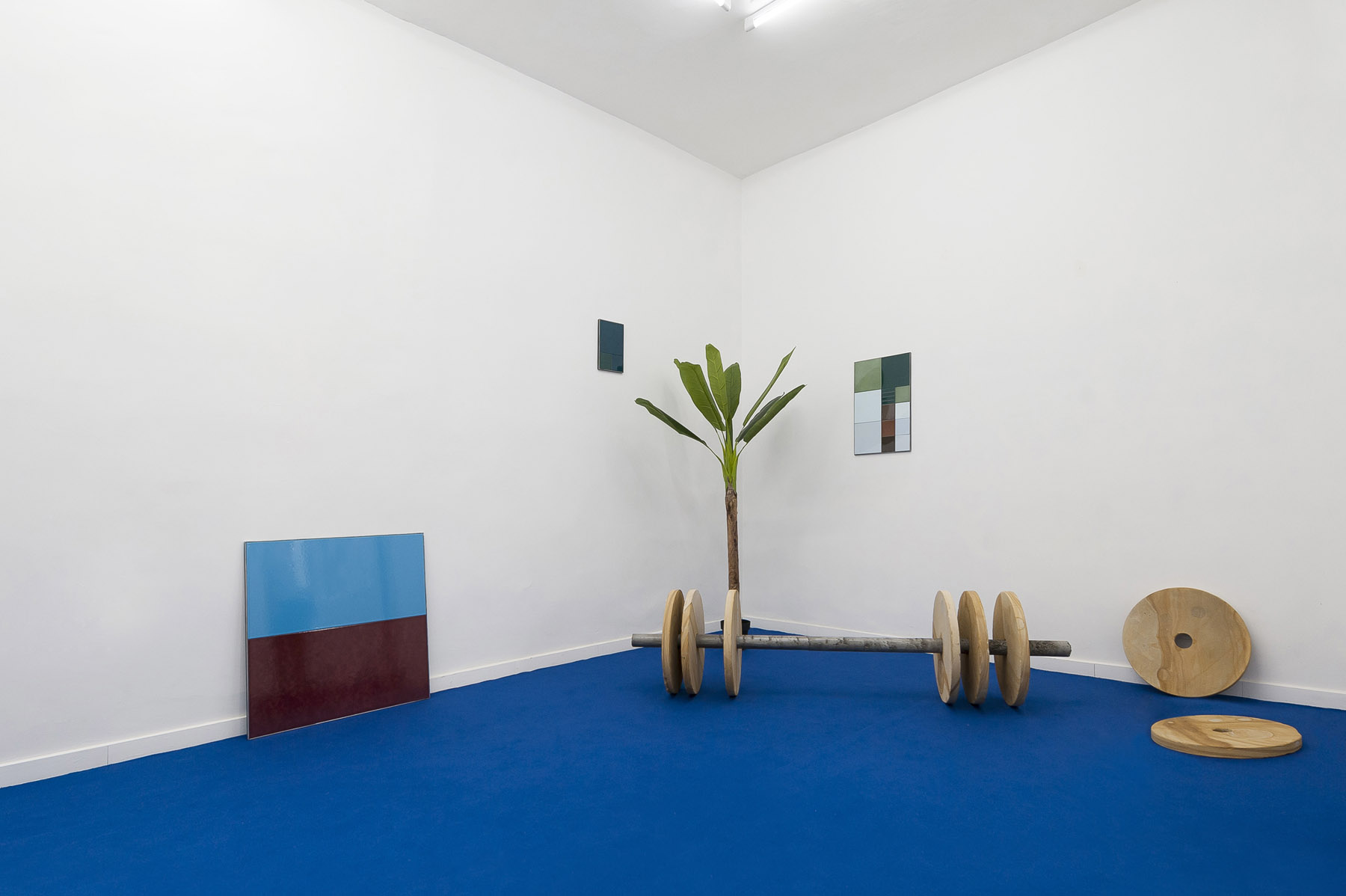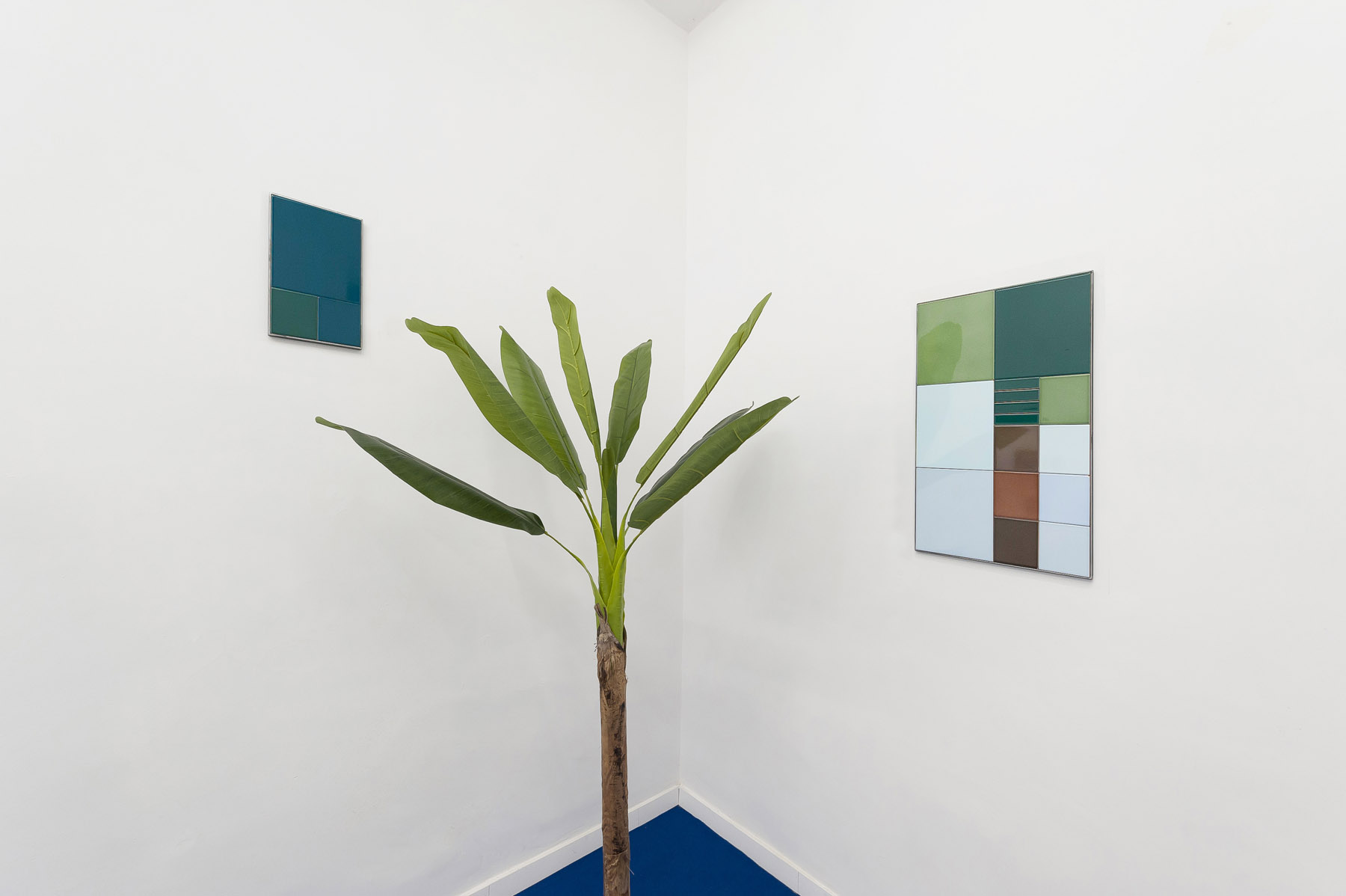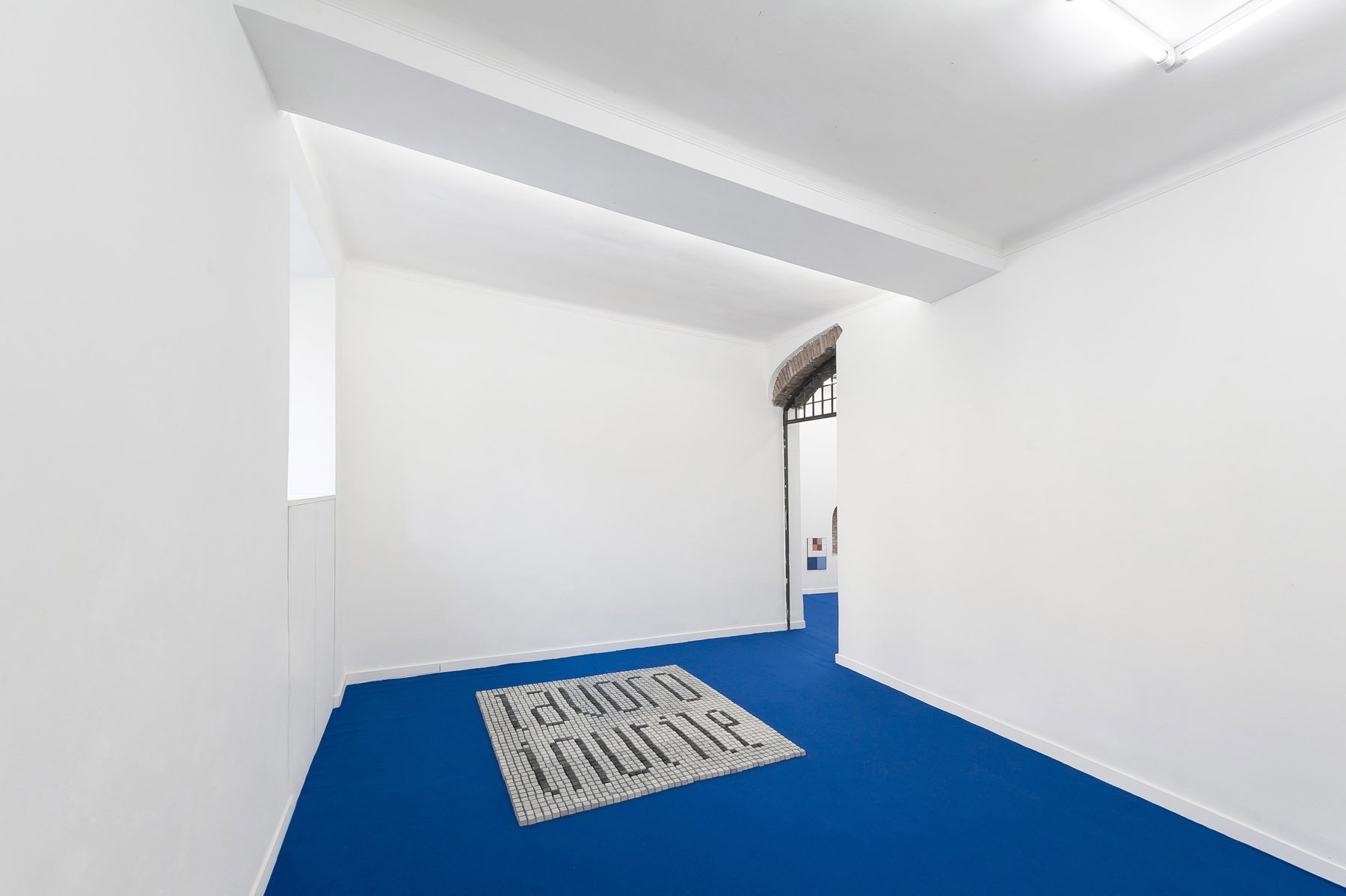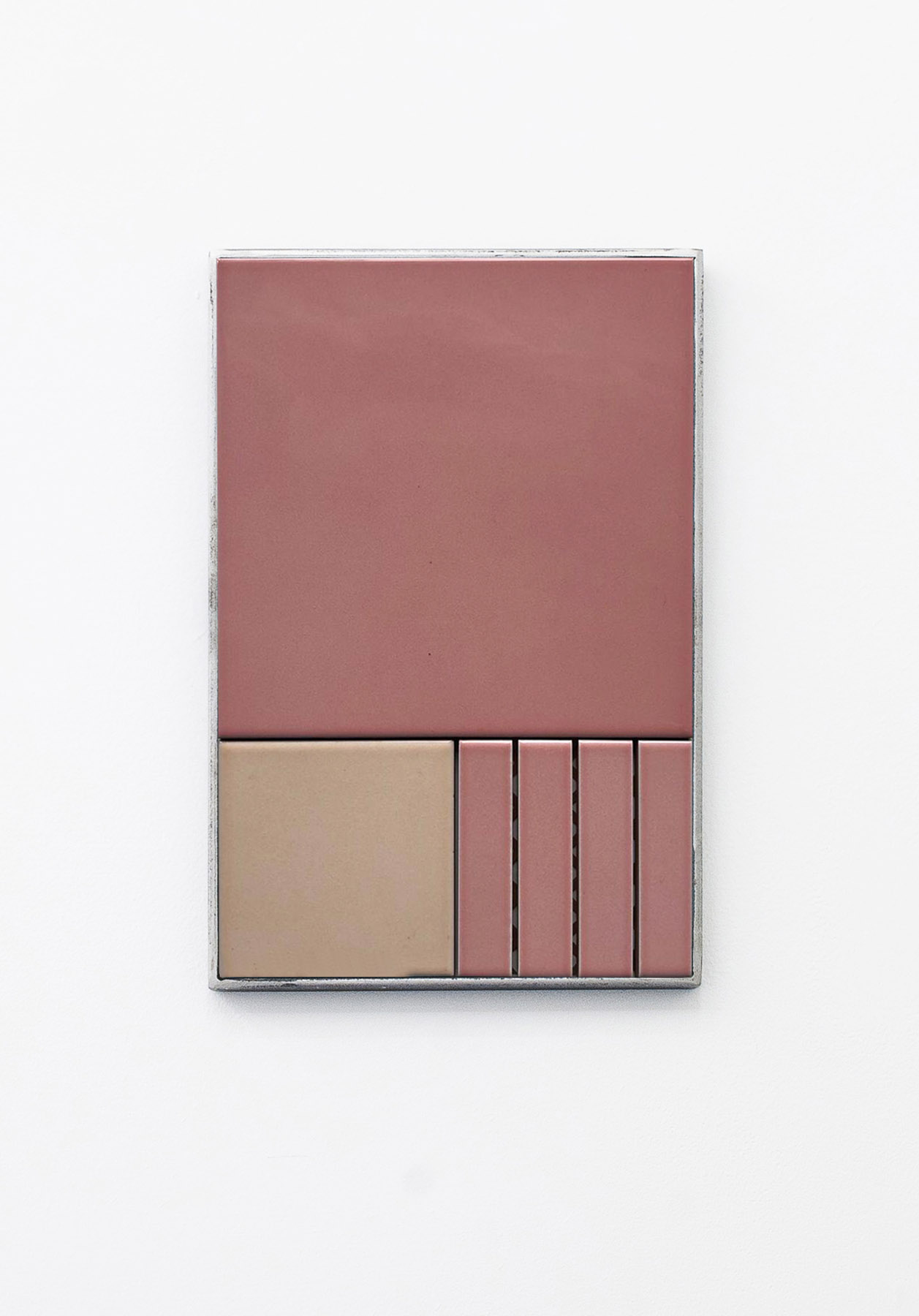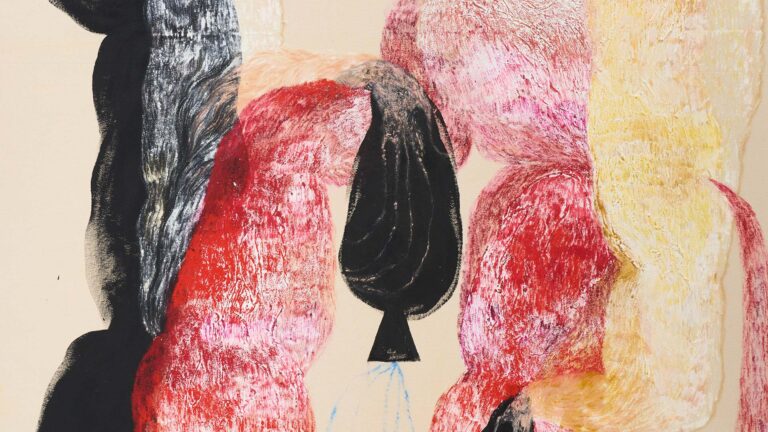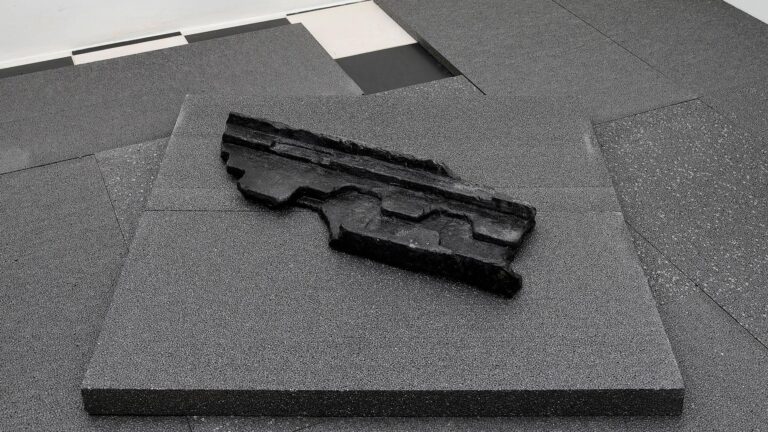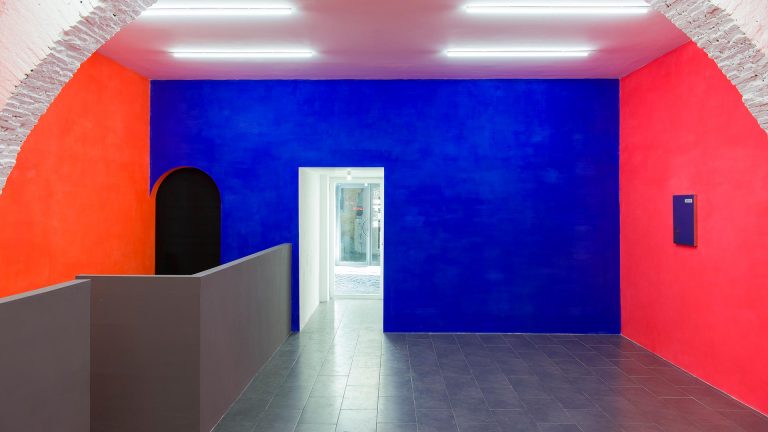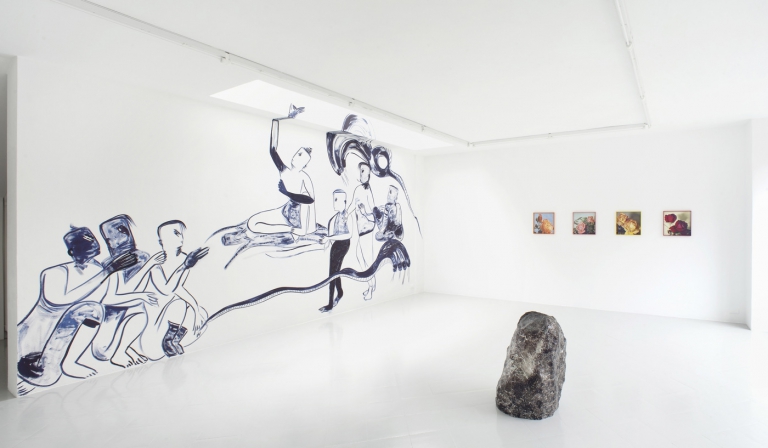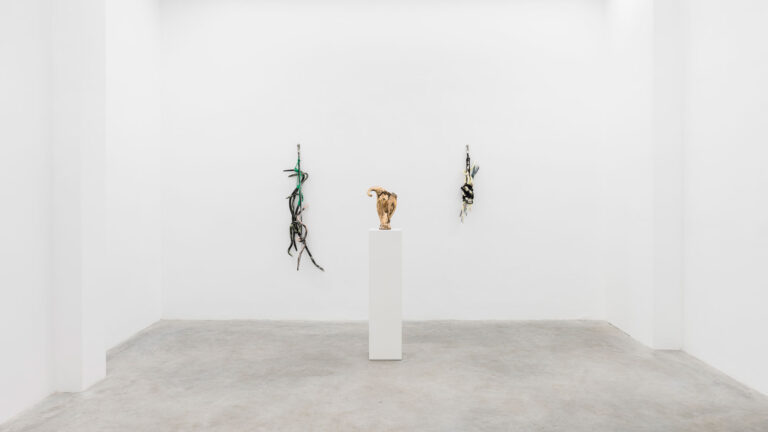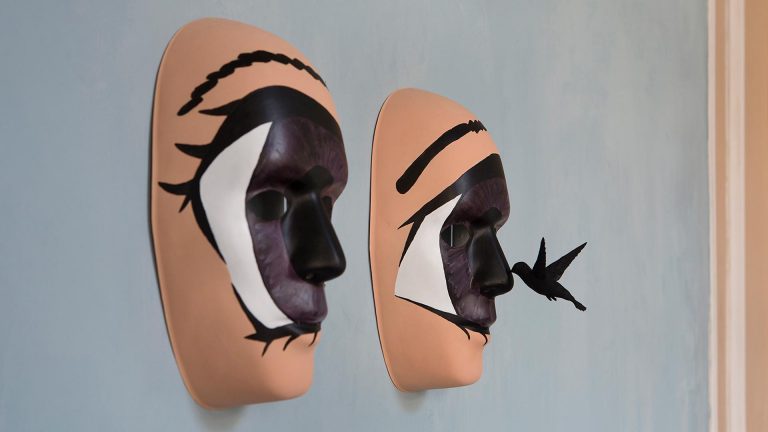Artist: Jonathan Vivacqua
Exhibition title: Lavoro Inutile
Curated by: Eleonora Aloise and Carlo Maria Lolli Ghetti
Venue: White Noise Gallery, Rome, Italy
Date: October 24 – December, 2020
Photography: all images copyright and courtesy of the artist and White Noise Gallery, Rome
The most recent history forced everyone to rethink its own position in society. A new, unattended need for accountability took 7,5 billion of people out of a sort of collective adolescence.
In this context we experienced the consequences of the most extreme cultural and ethical relativism. All the bubbles exploded, in many nationalistic systems the preservation of the economy prevailed over public health. Our walls crumbled revealing new, higher and beefier ones.
We all filled those patched-up days as we could. We hesitantly floated in that paralysis full of worries –where ineluctability provided a weird sense of freedom- while we assisted to the failing of the whole productive system.
The path going from the agricultural system to the digital revolution is a tale full of extraordinary achievements. In its fast progression it reached unimaginable goals, often leaving the principles of humanism to the history books without leading them to the future.
At the pinnacle of progress, comforted by a global routine (considering acceptable the existence of a universally known, unmovable, stochastic risk scale) we realised that we were totally unprepared. We found ourselves stuck in a socio-economic structure that we were ready to abandon straight away in the name of a renewed spirit of self-determination.
We agreed on the fact that, even though the sense of inadequacy made the most of the shock, it was the ideal soil for self-awareness.
Reconsidering our role in the productive system means to think about employment not only as an economic activity but mostly as personal investment in a extended time span. We should stop thinking about maximising results in the shortest period of time as the only driving principle of our productive time.
This impulse lasted less than expected. The nostalgia for the pre-lockdown behaviour came back stronger than ever in an extreme act of defence against change.
Jonathan Vivacqua (Como, 1986) works in this groove, researching the relationship among these contradictory elements and trying to find their basic equation. Scraps from construction sites, worthless elements silently contributing to a bigger project, become the centre of his practice.
These elements carry with them the idea of invisible labour, essential to the structural integrity but lacking any kind of pathos. Jonathan glorifies the form while he annihilates the function.


